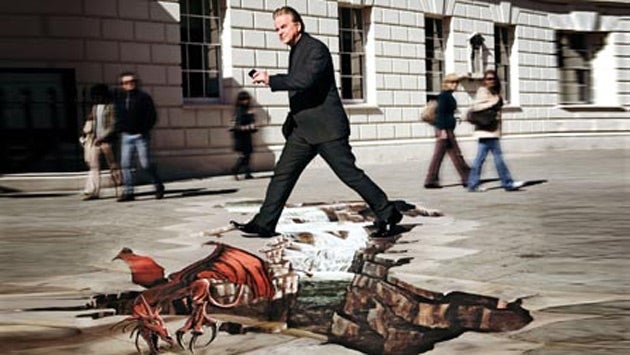Last Night's Television - Framed, BBC1; Hardcore Profits, BBC2
Risqué business

Scott Coffman's Carolina home appears remarkably tasteful, considering the career that paid for it. Coffman is the boss of Pornotube.com, which is, as its name suggests, the YouTube of pornography. Or, as the lisping millionaire phrased it in the first part of Tim Samuels's documentary Hardcore Profits, "the greatest place for masturbation that the internet has ever seen."
Porn is bigger business now than ever. One of Samuels's interviewees put the size of the global market for porn on mobile devices at $1.7bn per year. There's at least one hedge fund that invests solely in the porn trade, which also employs its own Washington lobbying firm (the same one as Microsoft). Pornotube, bulging with user-generated video content, has been online since 2006 and already boasts 40 billion hits per month.
Coffman derives his income from advertising, but the really big bucks are made by the banks and credit-card companies legally allowed to charge "adult" businesses more than their other clients. Meanwhile, hotel chains and satellite-television providers profit handsomely from the porn they pipe into customers' TV sets. It was the pornographic interests of these major mainstream corporations that most concerned Samuels, the programme's presenter.
He began by playing his semi-serious subject for laughs, gamely fingering Pornotube's prototype of an electronic orifice that imitates onscreen sexual activity "touch for touch" (it's easy to clean, and has a three-ounce "lube reservoir"), finding pensioners at a village bowls club who claimed porn was thrust in their faces daily, and travelling to Ghana, where the locals persuaded him to admit his own proclivities. "Blimey!" he exclaimed Therouxishly at one porn clip, treading the tightrope between savviness and faux-innocence, "She's already got her kit off!"
Samuels reasoned that mobile-phone operators are the biggest suppliers of porn on the high street, because their handsets and networks convey the stuff. The phone and credit-card companies don't, he pointed out, include their porn-delivery capabilities in their advertising; instead, they emphasise the more innocuous bits of their business, like chatting to friends, or buying shoes. He wheeled out their corporate-responsibility messages in an attempt to shame them for lack of propriety, and even confronted an anti-porn-campaigning US congressman with the donations he'd received from Marriott, one of the porn-purveying hotel chains.
His arguments were all well and good, but unlike the numerous criminal activities made possible by the telephone, most porn is perfectly legal. If he was after the facilitators of self-abuse, he might just as well have blamed Kleenex. There are very good reasons for Visa not to advertise porn on telly at prime time, such as the Advertising Standards Authority, or the fragile sensibilities of the Ardleigh bowls club's membership. To expect multinationals to withdraw from such an attractive source of income is surely naive. And a politician accepting campaign donations from a company with which he has a difference of opinion hardly plumbs the depths of DC corruption.
Samuels was trying to suggest that companies exert financial pressure on pornographers to persuade them to better protect their performers, and/or to produce more ethical content. But as well as its somewhat muddled argument, the show seemed to suffer from the preconception that porn is inherently socially corrosive. Yes, Samuels found examples of hotel chains that had removed it from their TV menus to preserve their family-friendly brands. He found porn performers risking their wellbeing on unprotected sex for the titillation of the masses. He even, in Ghana, found men who claimed porn was reponsible for their having contracted HIV.
But porn is almost as old as intercourse itself, and society has survived intact so far. Is less porn really the solution to Africa's problems? And is porn really the worst thing inflicted on us by mobile-phone companies? Personally, I'd rather they got rid of those tedious ads with the people doing karaoke in Trafalgar Square.
Which brings me, oh so neatly, to the opening scene of Framed, in which a curator, Quentin Lester (Trevor Eve, assured as ever), trotted snootily through the crowds in said square on his way to work at the National Gallery. When the gallery's ancient plumbing caused a flood, Quentin and the entire collection were dispatched to a disused mine beneath a mountain in north Wales – the same spot where the National Gallery's priceless collection really was preserved during the Blitz. Quentin, an urbane aesthete who liked his old masters, his Lexus and his skinny macchiato decafs more than he liked other people, was looking forward to being alone with the paintings, but hadn't reckoned on the nearby town and its population of batty spinsters, troubled butchers and precocious children.

Watch Apple TV+ free for 7 days
New subscribers only. £8.99/mo. after free trial. Plan auto-renews until cancelled

Watch Apple TV+ free for 7 days
New subscribers only. £8.99/mo. after free trial. Plan auto-renews until cancelled
Frank Cottrell Boyce's adaptation of his own children's novel was a charming affair, despite containing just about every fish-out-of-water cliché in the book. When Quentin finally allowed the comely local schoolteacher to see his Velázquez, it also gave an optimistic account of the power of art to improve people's lives. And even if Quentin did maintain a mildly unhealthy interest in the Rokeby Venus while embarking on a fleshly relationship, I guess it beats being addicted to Pornotube.
Subscribe to Independent Premium to bookmark this article
Want to bookmark your favourite articles and stories to read or reference later? Start your Independent Premium subscription today.

Join our commenting forum
Join thought-provoking conversations, follow other Independent readers and see their replies